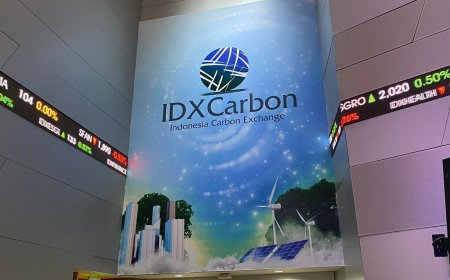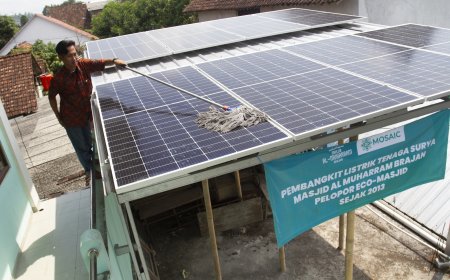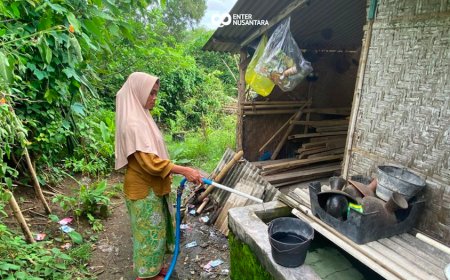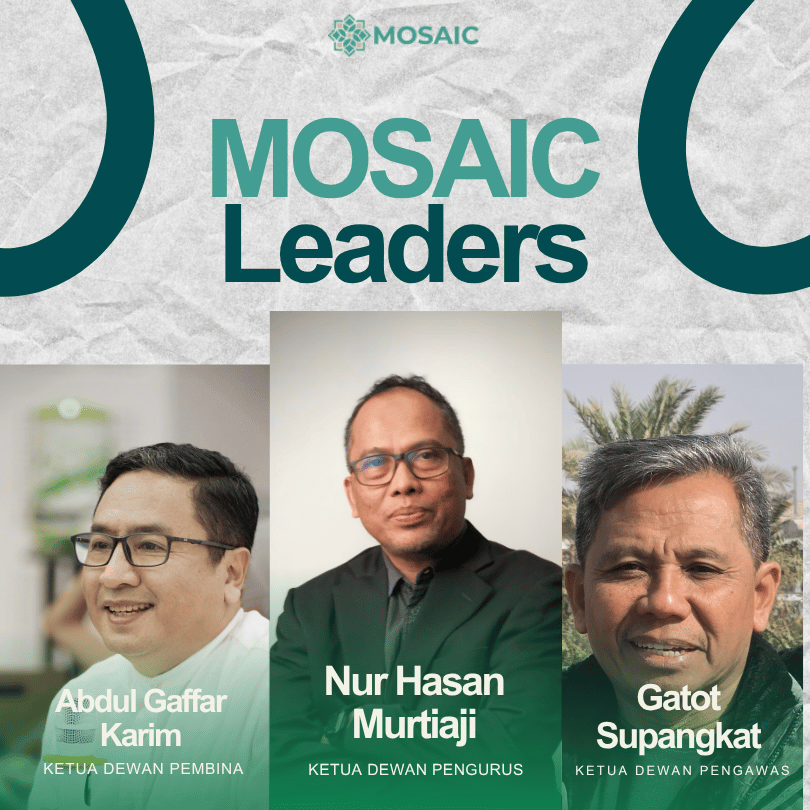'Green Jihad' behind the ballot
There needs to be a movement from the community termed as ecological jihad to correct government policies when deviating from the human mission of nature conservation
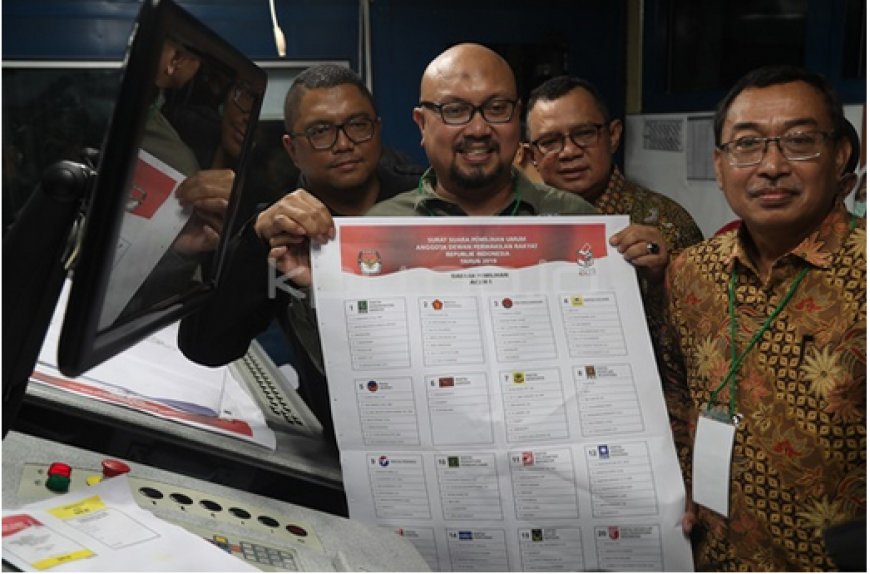
MOSAIC-INDONESIA.COM, JAKARTA -- February 14th will be the momentum to elect the national leadership in the next five years. As the election's largest constituency, Muslims deserve to get the best figure. One of the factors that should be considered in taking a stance to choose is environmental partiality. Why is the environment become an urgent consideration in choosing a potential leader?
Member of the Environment Assembly (MLH) Muhammadiyah Hidayat Tri Sutardjo said that the maintenance of nature (including the environment) is a human mission as caliph on earth. Humans have a central role in densifying the earth and preventing it from any form of destruction. This role is in fact doubted by angels who think that man's potential for harm is actually very great. Only, the angel's question was answered by Allah SWT with a mysterious answer.
As Allah says in QS Al-Baqarah verse 30: It means: Remember when your Lord said to the angels: “I will make a caliph on the face of the earth.” They said: “Why would you make (the caliph) of the earth a man who would wreak havoc on it and shed blood, when we always glorify you and sanctify you?” The Lord said, “I know what you do not know.”
Angelic doubt is indeed relevant if we look at the data at hand. At the beginning of this year, the disaster due to environmental damage was indeed described as massive. At least, the National Agency for Disaster Management (BNPB) recorded 194 disasters in various forms from floods, landslides to forest and land fires (karhutla). By comparison, in 2023, there were a total of 5,400 disasters that hit Indonesia. Almost half, or as many as 2,051 disasters, are cases of karhutla.
Government policy has played a role in environmental destruction. The young Muhammadiyah scholar Rijal Ramdani in his article entitled Environmental Rescue As Jihad of Muhammadiyah in the Second Century: Challenges and Future of the Muhammadiyah MLH, reveals that very massive environmental damage such as floods, droughts, landslides, forest fires, garbage, polluted river water, abrasion, and others is also a form of past government policy that gave massive concessions over land, forest, mine, and plantation leasing permits to certain companies (McCarthy, 2010). Another cause, the expansion carried out by society towards natural resources is due to the pressure of short-term economic needs (Nesadurai, 2018).
Rijal added that there are substantial issues that we should both ponder over the consitution we have. Article 33 of the 1945 Constitution states that the earth, water and natural wealth contained therein are controlled by the state and used for the greatest prosperity of the people. This affirms that the state is the only actor that controls all natural resources.
To that end, there needs to be a movement from the society called ecological jihad to correct government policies that deviate from the human mission of nature conservation. According to Rijal, the ecological Jihad movement is expected to be a representation of the voices of 'enlightened' groups who are concerned about how much of Indonesia's natural wealth is being plundered by global corporate interests, in order to meet the needs of the world market in 'devious' ways by manipulating the law.
Indonesia's awareness of climate issues is also growing. In its survey entitled 'Energy Transition Expectations for Capres 2024', the Center of Economics and Law Studies (Celios) described that if the general survey shows, 81% of Indonesians agree that the government needs to declare a climate emergency. When viewed from the area where they live, people living in urban (89%) and suburban (88%) environments tend to agree more if the government declares a climate emergency compared to people in rural areas (74%). The study found that Generation Z and Millennials aged 15-34 were the most likely to perceive that the climate crisis was a real thing. Another result, as many as 5% of respondents between the ages of 45-54 answered that the climate crisis is not real. Furthermore, 60% of the public believe that the government has not been able to formulate policies that can prevent the climate crisis in Indonesia.
This awareness becomes capital for Muslims in the context of elections that are already in sight. It can't be, they have a responsibility to choose the right leader in order to implement the ecological jihad. Moreover, the Indonesian Ulama Assembly (MUI), once issued a fatwa contained in the Ijtima Alim Ulama of the Indonesian Fatwa Commission in 2009. At that time, MUI stipulated that choosing a leader who is faithful and pious, honest, trustworthy, active and aspirational (tabligh), capable (fathanah) and fighting for the interests of Muslims is mandatory.
On the other hand, MUI has also issued various fatwas supporting the environmental movement. For example, Fatwa No. 41 of 2014 on Waste Management to Prevent Environmental Damage, Fatwa No. 30 of 2016 on the Law of Burning Forest and Land and its Control, to Fatwa No.4 of 2014 on Preservation of Rare Animals to Maintain Ecosystem Balance.
If you watch the visions of the presidential and vice presidential candidates and the five presidential debates that have been passed, there are different perspectives of the three parties that can be understood by the environment. The three candidates' discussions on environmental issues were mixed.
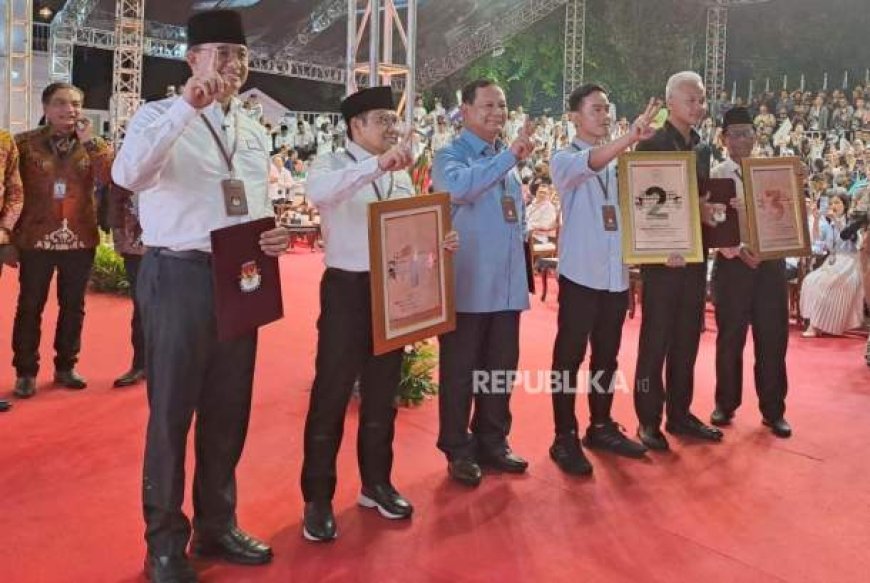
The first candidate, Anies Baswedan and Muhaimin Iskandar had eight missions about the environment. In addition to implementing environmental governance, the couple, who is familiar with Amin, promotes the use of new renewable energy. In addition, the couple wants to reduce the rate of forest destruction, forest intake conservation, and reforestation/rehabilitation to maximize the role of forests as carbon sinks.
Prabowo Subianto and Gibran Rakabuming Raka, who are the candidate number two, will pursue energy self-sufficiency to reduce dependence on fossil energy. The goal is to make Indonesia the world's green energy king (super power) in the field of renewable new energy and energy based on vegetable raw materials (bioenergy).
Meanwhile, the third candidate, Ganjar Pranowo and Mahfud MD, carried out three fast-moving missions related to the environment, renewable new energy and ecological justice. The couple also discussed grassroots programs such as Kampung Sadar Klima and self-sufficient villages with new renewable energy. The pair also ushered in a sustainable blue economy.
Although the three parties claim to carry out a sustainable development program, it is appropriate that we think critically and question again about the implementation of the visions of the three parties. Wabil specifically, how their track record in environmental issues while being leaders at various levels.

